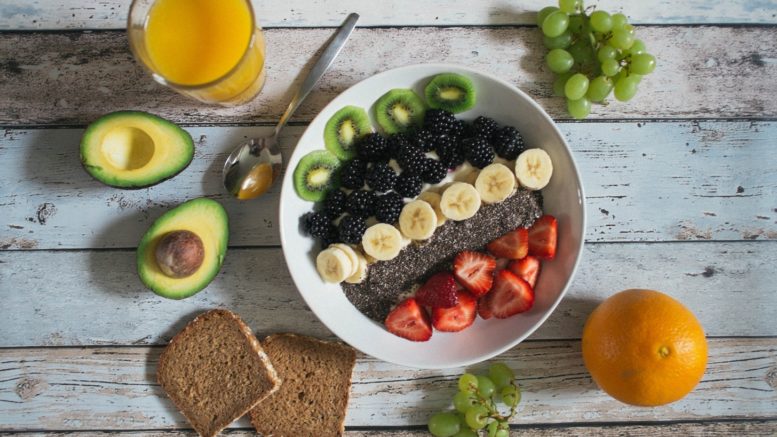Are you tired of feeling sick and tired? Why not consider going vegan to improve your well-being? This plant-based diet shuns meat and dairy products, focusing on cruelty-free, nutrient-dense sources of nutrition.
Apart from the moral and ethical benefits of going vegan, there’s a surprising amount of physiological and psychological advantages as well. As you progress with the diet, your body undergoes significant changes that increase immune function, circulation, neurotransmitter regulation, to name a few.
Here’s a timeline of the changes and what you can expect to happen to your body, and your health, as a result of your new lifestyle choice.
Source: freepik.com
Getting Started – What to Expect in the First 2-Weeks
The most noticeable change is a tremendous boost of energy you experience in the first few days after starting your vegan diet. Gastrointestinal inflammation subsides, and your tummy will feel light as a feather.
After a week you’ll notice that you don’t experience any cravings for fast foods, soda, or candy as your brain weens itself of the addiction its developed to salt, bad fats, and sugar. You’ll also begin to notice an improvement in cognitive function. It becomes easy to wake up in the morning with your mind feeling sharp and focused on daily tasks.
During the first week, it’s common for people to experience up to a 10% reduction in body weight as glycogen depletes and water-weight comes off.
After the 2-week mark, you’ll begin to see the results from reduced gastrointestinal distress. Your bowel function becomes regular and, depending on the state of your old diet; you may experience less flatulence during the day. The trillions of live bacteria in your GI tract, known as biomes, begin to flourish as gastrointestinal inflammation remains low.
Typical Changes Over the Next 6-Months
Over the next few months after the initial introductory phase of your vegan diet require you to be diligent with the daily monitoring of your health. While the benefits of going vegan will still keep the changes coming to your body, not all of them have a positive impact on your health. It is important to follow the advice of an expert or a trusted resource such as Veganliftz.com.
At the 3-month mark, it’s best to visit your doctor for a blood work panel where your physician tests your blood for any nutrient deficiencies. You’ll be pleased to discover that your fasting blood glucose level is in the optimal range, along with a vast improvement in cholesterol and hormone balance.
It’s common for vegans to experience low-levels of Vitamin D and calcium as a result of removing dairy and meat from their dietary intake.
Vitamin D is a critical nutrient for managing the health of your cardiovascular, neurological, and skeletal system. Deficiencies in Vitamin D expose you to the risk of developing physiological disorders such as depression, headaches, and hair loss.
Calcium is another critical nutrient that’s responsible for cell-communication and new cell generation. A deficiency in calcium reduces bone-mass, weakening the skeletal system and inviting the onset of chronic diseases such as osteoporosis and rheumatoid arthritis.
The Results from a Year of Following a Vegan Lifestyle
As weeks turn into months, and eventually, the day dawns on your first full year as a vegan, you can expect to look at yourself in the mirror and see a radical change that occurred over the last 12-months. You’ll look lean, with glowing skin, bright eyes, and silky hair.
On the downside, by this stage, your body’s stores of vitamin B12 will be entirely depleted. Since you can only receive this nutrient through consuming animal-based foods, it’s possible to develop further physiological and psychological disorders as a result of a B12 deficiency.
Risks to your health may include stroke, fatigue, tingling in the hands and feet, as well as shortness of breath and elevated heart rate.
2 to 3-Years After Going Vegan
After your 30th birthday, your body begins to deplete calcium deposits from the skeletal system. Going vegan at this stage of your life further exacerbates the depletion of this vital mineral.
While cruciferous veggies like kale and spinach are rich in calcium, they may not have enough of it to cover your daily needs. Natural, quality supplements can help here but you need to educate yourself and use them with caution.
Supplements for Enhanced Vegan Health
Veganism is a sensible lifestyle choice that focuses on a minimalist approach to eating and living. Unfortunately, as time progresses with the diet, vegans are at risk of developing nutrient deficiencies, especially if they are athletes or very active people like runners and cyclists.
Supplementing your diet with vitamins and minerals, like Vitamin D and calcium, prevents the onset of nutrient deficiency by giving your body everything it needs to maintain homeostasis. You can use natural support to improve bone health, maintain muscle mass, and enhance cognitive function.
Choose a cruelty-free supplement brand that specializes in products for vegans. Many supplement companies use additives and fillers such as magnesium stearate that is not suitable for your new lifestyle.
In Closing
Going vegan isn’t for everyone, but it does offer an alternative lifestyle geared towards improving physical and mental well-being. If your current diet has left you overweight and lethargic, maybe it’s time to give plant-based a try?
Article by Caitlin Evans



